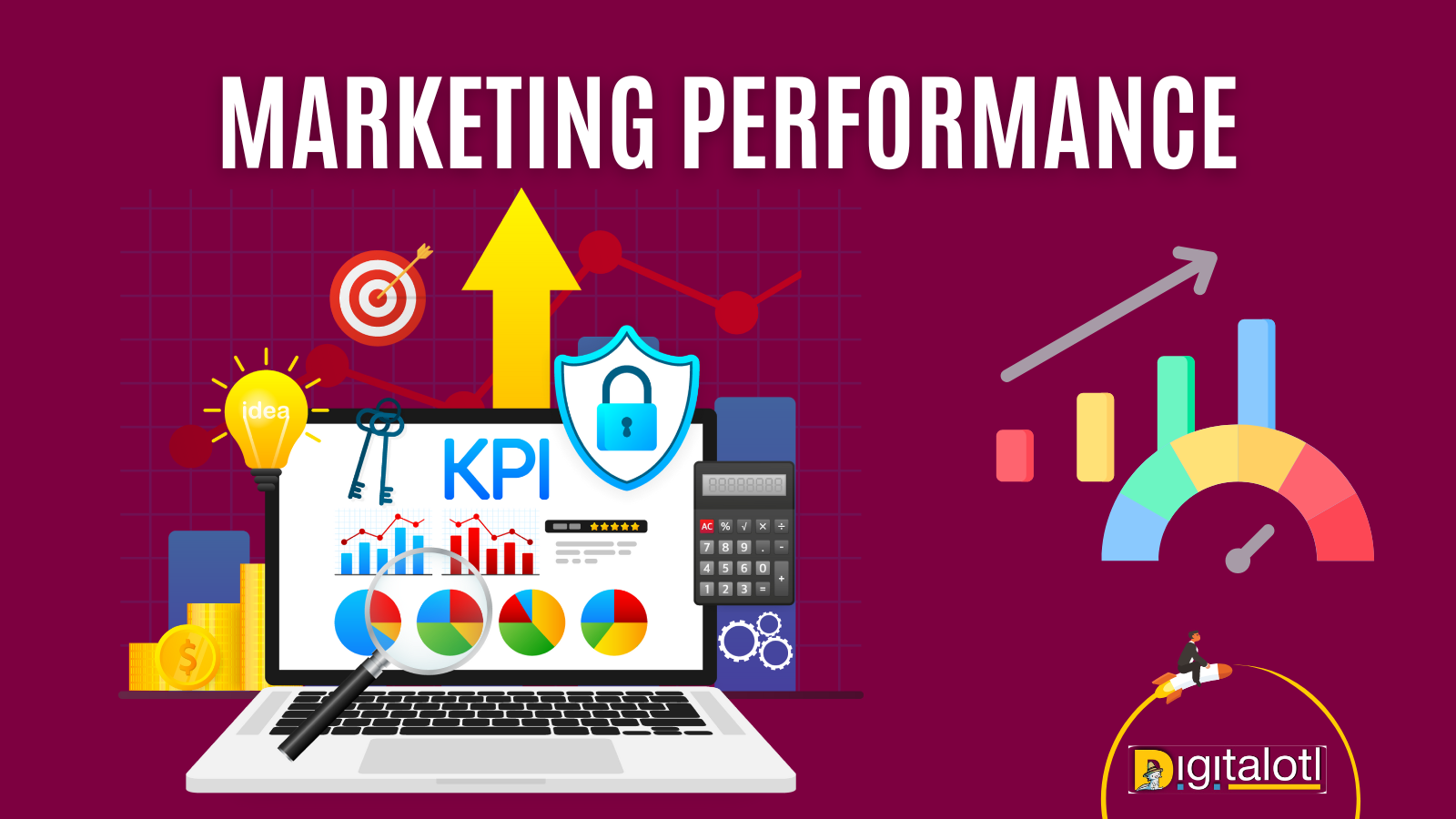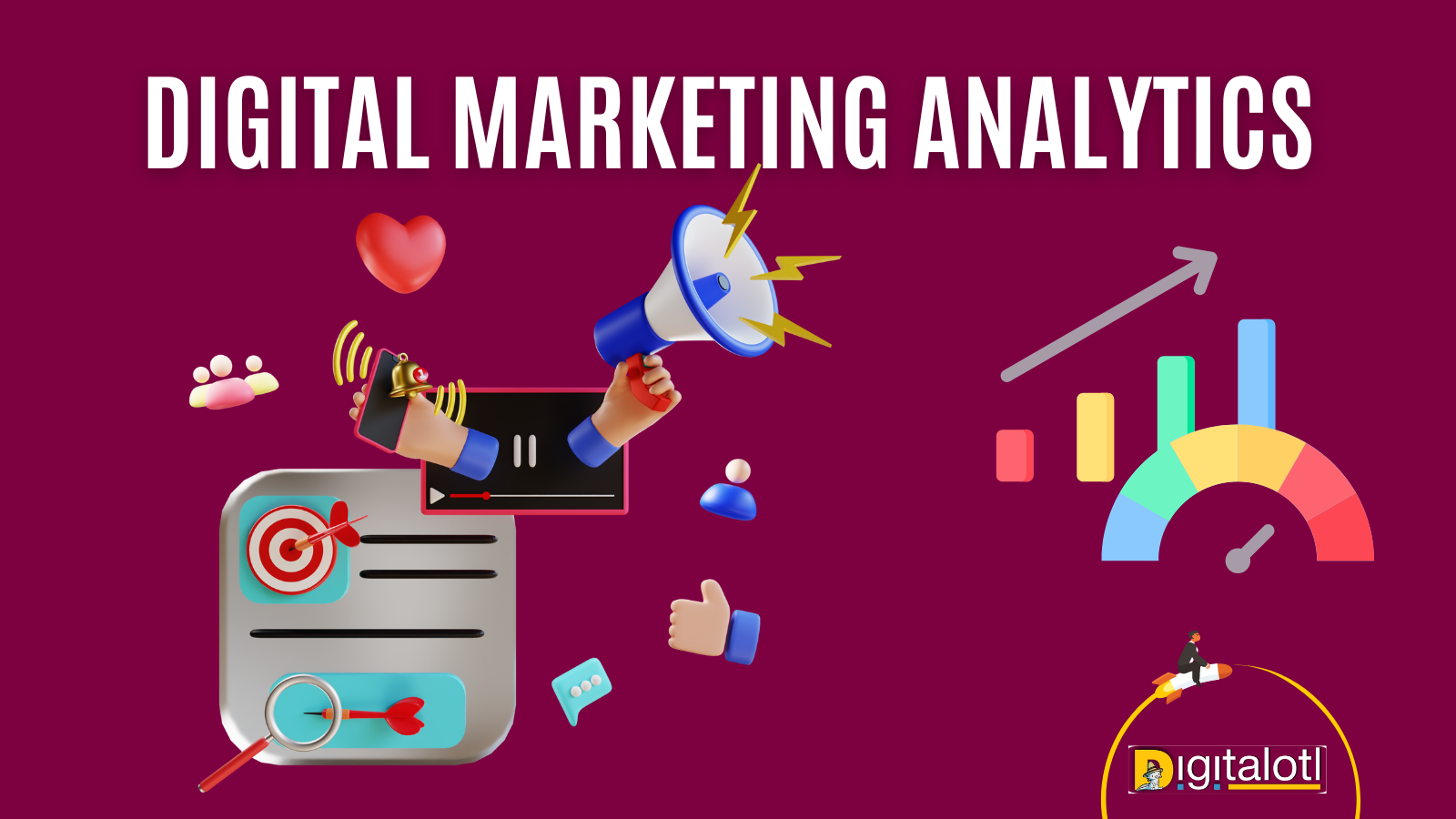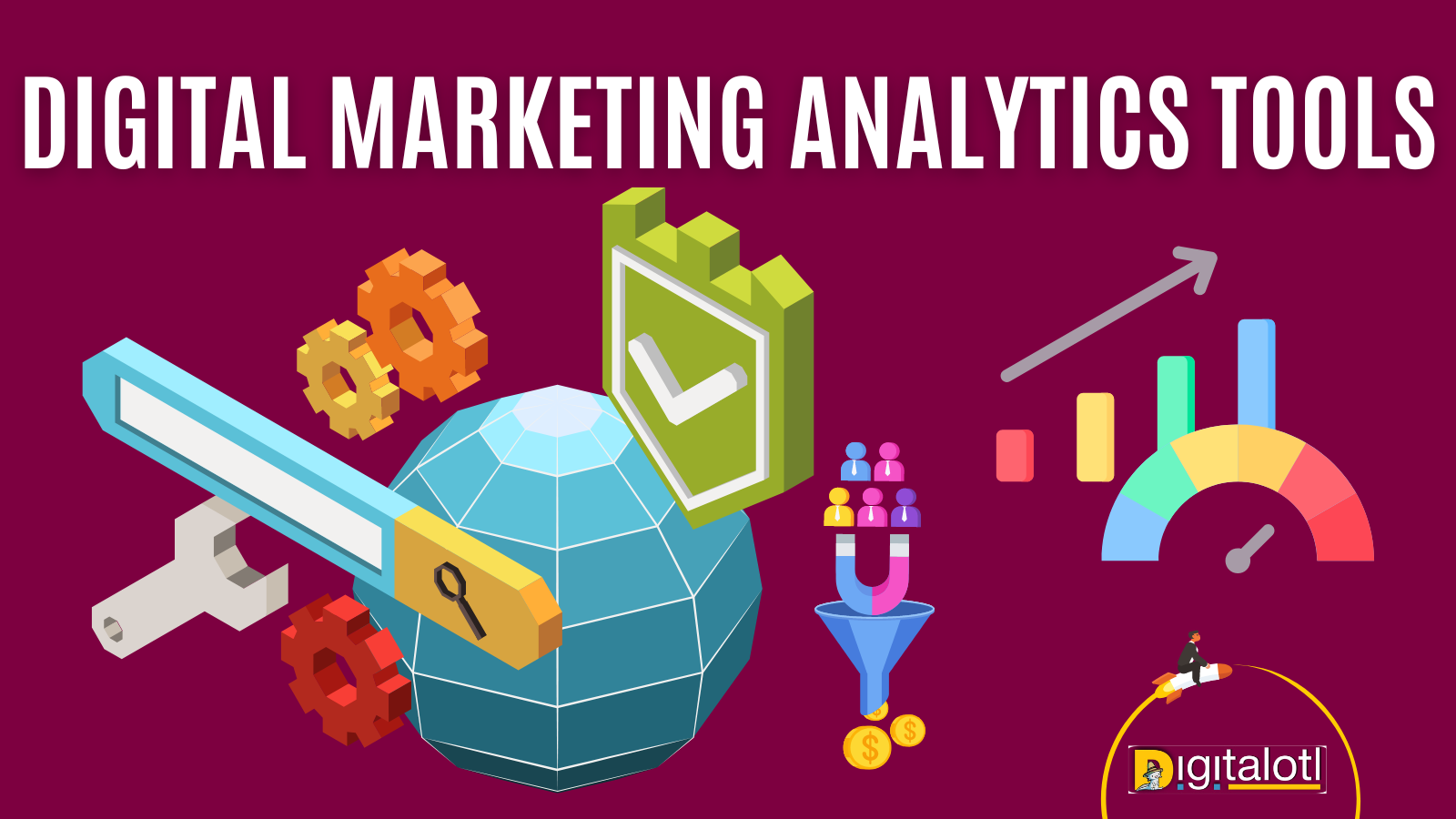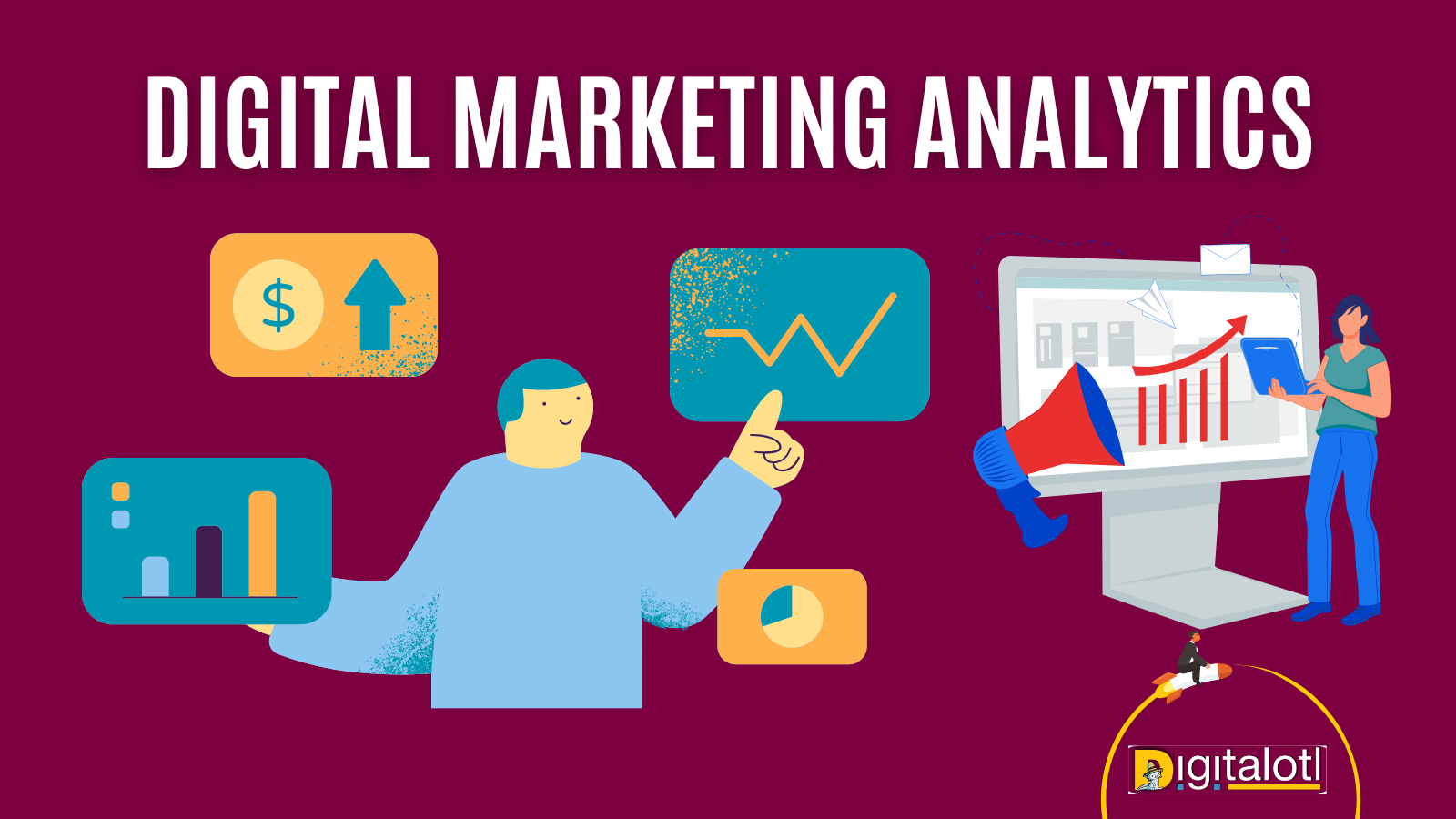In today’s digital age, businesses are constantly striving to gain a competitive edge and maximize their online presence. To achieve these goals, it is crucial to have a deep understanding of digital marketing analytics.
By harnessing the power of data analysis for marketing, businesses can measure their marketing performance, identify areas for improvement, and make informed decisions to optimize their strategies. In this ultimate guide, we will delve into the realm of digital marketing analytics, exploring the importance of data analysis for marketing and providing valuable insights to help you outrank your competitors.
Table of contents
Why Digital Marketing Analytics Matter
Digital marketing analytics play a pivotal role in the success of any online business. They provide valuable insights into consumer behavior, campaign effectiveness, website performance, and overall marketing ROI (Return on Investment). By harnessing the power of data analysis, businesses can gain a comprehensive understanding of their target audience, enabling them to tailor their marketing efforts for maximum impact.
Measuring Marketing Performance

One of the primary objectives of digital marketing analytics is to measure marketing performance accurately. By leveraging various analytics tools and platforms, businesses can track key performance indicators (KPIs) such as website traffic, conversion rates, customer acquisition costs, and revenue generated. These metrics offer crucial insights into the effectiveness of marketing campaigns, allowing businesses to identify successful strategies and allocate resources wisely.
Understanding Data Analysis for Marketing
To harness the power of digital marketing analytics, it is essential to understand the fundamentals of data analysis for marketing. This process involves collecting, organizing, and interpreting data to uncover meaningful patterns, trends, and correlations. By applying statistical techniques and data visualization tools, businesses can gain valuable insights into consumer preferences, behavior, and the effectiveness of their marketing efforts.
Key Metrics in Digital Marketing Analytics

When diving into digital marketing analytics, several key metrics deserve attention. These metrics provide valuable insights into the performance of various marketing channels and campaigns. Let’s explore some essential metrics:
Website Traffic: Monitoring the number of visitors to your website is a fundamental metric. It helps evaluate the overall visibility and reach of your online presence.
Conversion Rate: Monitoring the proportion of website visitors who engage in a desired action, such as completing a purchase or submitting a contact form, holds the utmost importance in evaluating the success of your digital marketing efforts. A high conversion rate indicates that your marketing efforts effectively drive customer engagement.
Customer Lifetime Value (CLV): This metric measures the total revenue a customer generates throughout their entire relationship with your business. Gaining a comprehensive understanding of the Customer Lifetime Value (CLV) empowers you to make well-informed choices regarding your customer acquisition and retention strategies, enabling you to optimize your business’s long-term growth and success.
Click-Through Rate (CTR): CTR is a metric commonly associated with online advertising and email marketing campaigns. It measures the ratio of users who click on a specific link or ad to the total number of users who view it.
Return on Investment (ROI): ROI quantifies the profitability of your marketing campaigns. By calculating the revenue generated compared to the cost of marketing efforts, you can assess the effectiveness and efficiency of your strategies.
Utilizing Digital Marketing Analytics Tools

To successfully analyze and interpret marketing data, businesses rely on a variety of digital marketing analytics tools. These tools provide comprehensive insights, automate data collection processes, and facilitate decision-making. Below, we present a selection of widely recognized digital marketing analytics tools that are favored by industry professionals:
Google Analytics: Google Analytics is a robust platform that offers a wide range of features to track website traffic, user behavior, and conversion rates. It provides detailed reports and enables businesses to measure the effectiveness of their marketing campaigns.
Marketing Automation Platforms: These platforms, such as HubSpot and Marketo, provide powerful analytics capabilities alongside their automation features. They allow businesses to track and analyze various marketing channels, create targeted campaigns, and measure performance metrics.
Social Media Analytics Tools: Platforms like Sprout Social and Hootsuite offer comprehensive social media analytics, allowing businesses to track engagement, monitor brand mentions, and gain insights into their social media marketing performance.
Email Marketing Analytics: Email marketing platforms like Mailchimp and Campaign Monitor provide detailed metrics on open rates, click-through rates, and conversion rates for email campaigns. These insights help businesses optimize their email marketing strategies.
Conclusion
Digital marketing analytics have become indispensable for businesses aiming to excel in the digital landscape. By embracing data analysis for marketing, businesses can gain valuable insights, measure marketing performance accurately, and make data-driven decisions. Understanding the importance of key metrics and utilizing powerful analytics tools empowers businesses to optimize their marketing strategies, outrank their competitors, and achieve long-term success in the online realm.
Frequently Asked Questions (FAQs):
Q1: How often should I analyze my digital marketing analytics?
A1: It is recommended to analyze your DM analytics regularly to stay updated on the performance of your marketing efforts. Monthly or quarterly assessments are common, but the frequency may vary depending on your business goals and the scale of your marketing activities.
Q2: Are there any free digital marketing analytics tools available?
A2: Yes, several free tools provide valuable DM analytics insights. Google Analytics is a popular choice and offers a wide range of features for tracking website performance. Additionally, social media platforms like Facebook and Twitter provide built-in analytics tools. Which helps you to monitor the performance of your social media marketing campaigns.
Q3: How can I improve my conversion rate using digital marketing analytics?
A3: To improve your conversion rate, you can leverage DM analytics to gain insights into user behavior. Analyze user flows, identify bottlenecks in your conversion funnel, and make data-driven optimizations. Conduct A/B testing to test different strategies and continually refine your marketing approach based on the insights gained from analytics.
Q4: Can digital marketing analytics help me understand my target audience better?
A4: Absolutely! Digital marketing analytics provide valuable insights into your target audience’s demographics, interests, online behavior, and preferences. By analyzing these data points, you can develop more targeted marketing strategies. You can also create personalized campaigns, and tailor your messaging to resonate with your audience.
Q5: Is it worth investing in paid digital marketing analytics tools?
A5: Investing in paid marketing analytics tools can offer advanced features, in-depth analytics, and more robust reporting capabilities. These tools often provide a comprehensive view of your marketing performance across various channels. It is also allowing you to make data-driven decisions and optimize your strategies effectively. Consider your business goals, budget, and specific analytics requirements when deciding whether to invest in paid tools.

